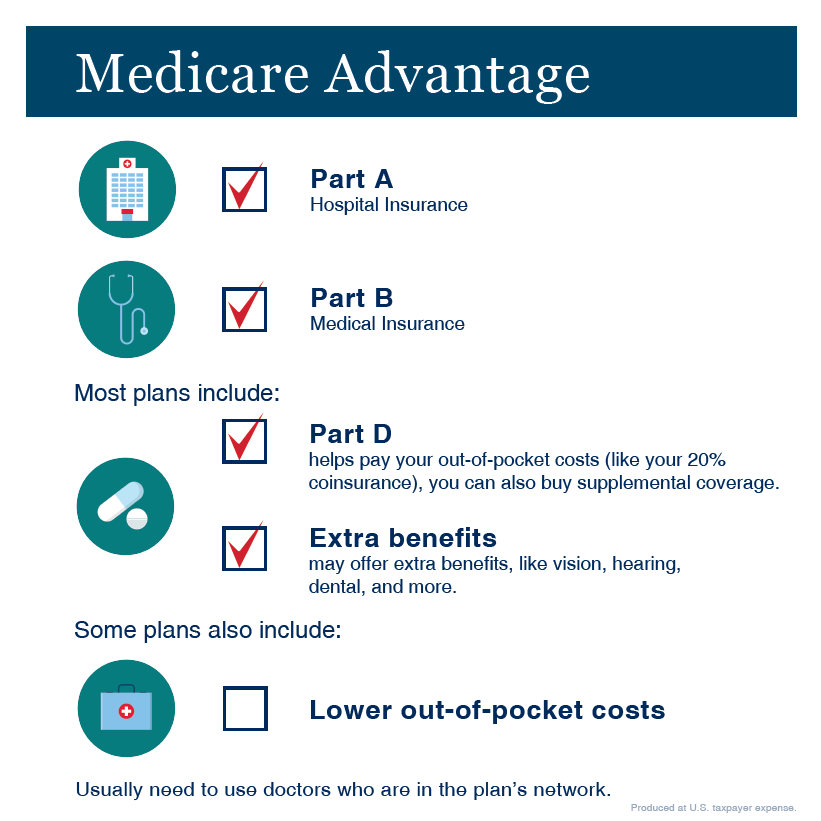The Only Guide for Medicare Advantage Agent
The Only Guide for Medicare Advantage Agent
Blog Article
Medicare Advantage Agent for Beginners
Table of ContentsSome Known Details About Medicare Advantage Agent Medicare Advantage Agent Things To Know Before You BuyNot known Facts About Medicare Advantage AgentThe smart Trick of Medicare Advantage Agent That Nobody is Talking AboutMedicare Advantage Agent Fundamentals ExplainedGetting My Medicare Advantage Agent To WorkUnknown Facts About Medicare Advantage Agent
:max_bytes(150000):strip_icc()/types-of-employee-benefits-and-perks-2060433-Final-edit-60cedb43c4014fdeb51aa3cd3c25f027.jpg)
Significant ailments can set you back lot of times that. Healthcare coverage assists you get the treatment you need and protects you and your family monetarily if you obtain ill or harmed. You can obtain it via: Your task or your spouse's work, if the employer provides it. You must fulfill eligibility demands for government wellness treatment programs. For more details regarding government programs, go to Benefits.gov. Discover more: Medical insurance: 5 things you may not recognize Enjoy: Are you instantly needing medical insurance? You can add your family members to a work wellness plan. If you acquire from an insurance firm or the marketplace, you can acquire
a strategy that additionally covers your household. They do not have to live at home, be registered in school, or be declared as a reliant on your income tax return. You can maintain married youngsters on your strategy, but you can not include their partners or youngsters to it. If you have reliant grandchildren, you can keep them on your strategy up until they turn 25. You can get at other times only if you lose your coverage or have a life modification. Life adjustments include things like obtaining wedded or
divorced, having a baby, or taking on a child. You can sign up for a job health plan when you're very first worked with or have a significant life modification. They can not refute you protection or charge you a lot more due to the fact that of a preexisting problem or special needs. The expense relies on your scenarios. You'll have to pay premiums and part of the expense of your care. A costs is a monthly fee you pay to have protection. To determine your premium, insurance coverage firms will certainly take into consideration: Your age. Whether you smoke or use tobacco. Whether the protection is for one person or a household. They might rule out your sex or wellness factors, including your case history or whether you have an impairment. Costs for specific strategies are secured for one year. Fees generally go up when the strategy is restored to reflect your age and higher health and wellness care prices. All health plans require you to.
pay some of the price of your wellness treatment. This is called cost-sharing. Along with costs, you usually should meet a deductible and pay copayments and coinsurance. A is the quantity you need to pay before your plan will pay. If your insurance deductible is$ 1,000, your plan won't pay anything up until you've paid $1,000 yourself.
You'll likewise have a copayment if you most likely to the emergency clinic or see a specialist. The quantities vary by plan. is a quantity you spend for a covered solution after you've satisfied your insurance deductible. It's typically a portion of the price of the solution. For instance, your health insurance may pay 80 % of the price of a surgical treatment or medical facility keep.
The percent you pay in coinsurance differs by strategy. You usually don't have to pay coinsurance in an HMO. Federal legislation sets limits on the amount you pay out of pocket in a plan year. Some plans have reduced out-of-pocket limits. After you reach the limit, you don't need to pay copayments or coinsurance for the rest of the plan year.
What Does Medicare Advantage Agent Do?

The 4 types are: HMO strategies. Unique service provider (EPO) plans. Preferred service provider (PPO) plans. Point-of-service strategies. All 4 types are handled care plans. This suggests they agreement with medical professionals and various other health and wellness care companies to treat their members at discounted prices. These companies comprise a plan's network. Taken care of treatment plans limit your option of medical professionals or motivate you to make use of medical professionals in their networks.
The plans differ in the level to which you can use doctors outside the network and whether you have to have a doctor to supervise your treatment. If you don't, you may have to pay the complete cost of your care on your own.
You'll also have a copayment if you go to the emergency clinic or see a specialist. The amounts differ by strategy. is a quantity you pay for a protected solution after you have actually met your deductible. It's usually a percentage of the expense of the solution. For instance, your wellness strategy could pay 80 % of the cost of a surgical procedure or medical facility keep.
The 8-Minute Rule for Medicare Advantage Agent
The portion you pay in coinsurance varies by strategy. Federal law sets restrictions on the amount you pay out of pocket in a strategy year.
A strategy year is the 12-month period from the date your coverage began - Medicare Advantage Agent. There are 4 types of major medical wellness plans in Texas.
The 4 kinds are: HMO plans. Special service provider (EPO) strategies. Preferred service provider (PPO) plans. Point-of-service strategies. All four kinds are managed treatment strategies. This implies they agreement with physicians and various other health treatment service providers to treat their participants at affordable rates. These suppliers compose a strategy's network. Taken care of care plans restrict your choice of physicians or urge you to use physicians in their networks.
The plans differ in the extent to which you can use physicians outside the network and whether you have to have a medical professional to oversee your treatment. You should make use of service providers in the HMO's network. If you don't, you may need to pay the complete price of your treatment on your own. There are exemptions for emergencies and if you need care that isn't available in the network.
Medicare Advantage Agent - An Overview
You'll also have a copayment if you most likely to the emergency clinic or see a specialist. The quantities differ by strategy. is a quantity you pay for a covered solution after you've see this here met your insurance deductible. It's generally a portion of the cost of the solution. Your wellness strategy could pay 80 % of the expense of a surgery or healthcare facility stay.

The percent you pay in coinsurance differs by plan. You typically don't need to pay coinsurance in an HMO. Federal law establishes limits on the quantity you pay out of pocket in a plan year. Some plans have reduced out-of-pocket limitations. After you get to the limit, you don't have to pay copayments or coinsurance for the remainder of the strategy year.
A plan year is the 12-month duration from the date your protection began. There are four types of major clinical wellness strategies in Texas.
The four types are: HMO strategies. Special carrier (EPO) strategies. Preferred supplier (PPO) strategies. Point-of-service strategies. All 4 types are managed care plans. This suggests they contract with physicians and other health and wellness care service providers to treat their members at reduced rates. These suppliers make up a plan's network. Taken care of treatment plans restrict your selection of doctors or motivate you to make use of physicians in their networks.
How Medicare Advantage Agent can Save You Time, Stress, and Money.
The strategies differ in the extent to which you can utilize doctors outside the network and whether you have to have a medical professional to supervise your treatment. You have to utilize providers in the HMO's network. If you do not, you could have to pay the complete cost of your care yourself. There are exceptions for emergency situations and if you need care that isn't offered in the network.
You'll additionally have a copayment if you most likely to the emergency room or see an expert. The quantities differ by strategy. is a quantity you spend for a covered service after you've met your deductible. It's typically a percentage of the price of the solution. For example, your health insurance plan pop over here might pay 80 % of the price of a surgical procedure or hospital stay.
The percent you pay in coinsurance varies by plan. You usually don't need to pay coinsurance in an HMO. Federal law sets restrictions on the amount you pay of pocket in a strategy year. Some strategies have lower out-of-pocket limitations. After you get to the limit, you don't have to pay copayments or coinsurance for the remainder of the plan year.
A strategy year is the 12-month period from the date your coverage began. For circumstances, if your insurance coverage began on September 1, your strategy year lasts till August 31. Discover more: Exactly how to conserve cash at the doctor Treatment options and costs There are four kinds of significant medical health insurance in Texas.
Medicare Advantage Agent Fundamentals Explained
The four types are: HMO plans. Unique company (EPO) plans. Preferred company (PPO) plans. Point-of-service plans. All 4 kinds are taken care of care strategies. This suggests they agreement with medical professionals and other health treatment providers to treat their members at discounted rates. These suppliers make up a plan's network. Managed care plans limit your choice of doctors or urge you to use physicians in their networks.
The plans vary in the level to which you can make use of physicians outside the network and whether you have to have a physician to additional hints supervise your care. You need to make use of companies in the HMO's network. If you do not, you might need to pay the complete expense of your care yourself. There are exceptions for emergency situations and if you need treatment that isn't available in the network.
Report this page